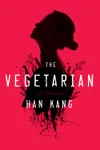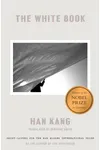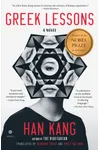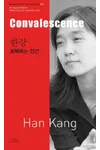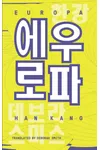Picture a South Korean storyteller who transformed a simple decision to stop eating meat into a haunting global phenomenon—meet Han Kang! Born in Gwangju in 1970, this literary visionary has captivated readers with her intense, poetic prose, weaving tales that probe the depths of human fragility and historical trauma. Her novel The Vegetarian not only won the 2016 Man Booker International Prize but also made her the first Korean author to claim this prestigious award, cementing her as a trailblazer in contemporary literature.
With a knack for blending the personal with the political, Han’s work invites readers into worlds where silence speaks louder than words, and the body becomes a canvas for resistance. From teaching creative writing to earning the 2024 Nobel Prize in Literature, Han Kang’s journey is as compelling as her stories. Let’s dive into her life, works, and why she’s a must-read!
The Making of Han Kang
Han Kang was born on November 27, 1970, in Gwangju, South Korea, a city marked by the 1980 uprising that later shaped her writing. Growing up in a literary family—her father, Han Seung-won, is a renowned novelist—Han was surrounded by books, finding solace in stories despite a childhood she described as overwhelming. At nine, she moved to Seoul, just months before the Gwangju Uprising, an event that left her with a sense of survivor’s guilt. She studied Korean literature at Yonsei University, debuting as a poet in 1993 before shifting to fiction with her 1995 short story collection Love of Yeosu.
Han Kang’s Unforgettable Stories
Han’s writing is a masterclass in lyrical intensity, blending experimental prose with themes of violence, grief, and bodily autonomy. Her breakthrough novel, The Vegetarian (2007), follows Yeong-hye, a woman whose refusal to eat meat spirals into a surreal rebellion against societal norms. Divided into three parts, each narrated by a different character, the novel explores patriarchy and human cruelty, earning global acclaim after its 2015 English translation by Deborah Smith.
Human Acts (2014) is a heart-wrenching mosaic of the 1980 Gwangju Uprising, told through shifting perspectives of victims, survivors, and the dead. It’s a powerful meditation on memory and solidarity. The White Book (2016), an autobiographical reflection on the loss of her newborn sister, blends prose and poetry, using white objects as metaphors for grief. Greek Lessons (2011, translated 2023) delves into vulnerability and connection, showcasing Han’s ability to make silence resonate. Her style—poetic, metaphorical, and unflinchingly honest—challenges readers to confront uncomfortable truths.
Why Han Kang Matters
Han Kang’s impact transcends borders, bringing South Korean literature to the global stage. Her 2016 Man Booker win opened doors for translated Korean fiction, inspiring a new generation of writers to tackle taboo subjects like trauma and resistance. The 2024 Nobel Prize, the first for a South Korean and an Asian woman, celebrated her ability to confront historical wounds with empathy and innovation. Her work resonates with readers seeking stories that blend beauty with brutality, offering a lens into the human condition that feels both universal and deeply Korean.
- Birth Date: November 27, 1970
- Key Works: The Vegetarian, Human Acts, The White Book, Greek Lessons
- Awards: Man Booker International Prize (2016), Nobel Prize in Literature (2024), Yi Sang Literary Award
Ready to explore Han Kang’s haunting worlds? Grab The Vegetarian or Human Acts and lose yourself in her poetic, thought-provoking prose!
